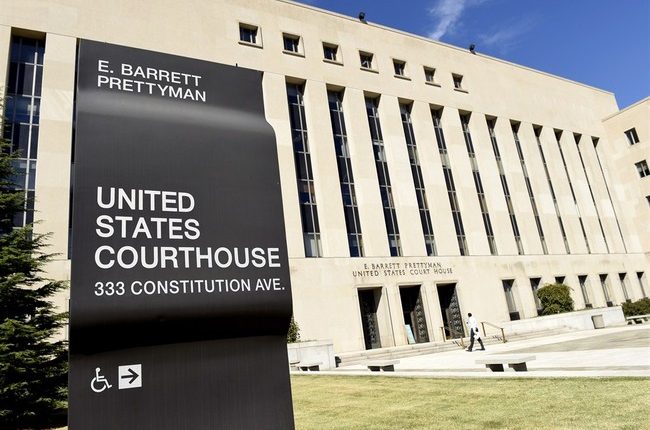Share this @internewscast.com

The Trump administration achieved a significant victory on Saturday in the D.C. Circuit Court of Appeals. The court not only granted the administration’s request for a stay pending appeal in several related cases but also outlined the guidelines that district courts should follow when analyzing the numerous ongoing cases concerning the administration’s actions.
Since President Donald Trump took office in January and started issuing various executive orders and actions to dismantle or significantly reduce the bureaucratic state, numerous lawsuits have been brought against the administration in an effort to hinder his agenda.
Keeping up with the litigation has been challenging — and I’m not even the one filing pleadings, briefs, or arguing motions on them; I’m just focusing on writing about some of the more important rulings and developments, along with my colleagues.
It’s also a bit dispiriting to see multiple rulings issued that seem more focused on allowing the judiciary to cluck its tongue at the Bad Orange Man than on actually adhering to the law. Trying to report on those while offering some encouragement to readers that, when all is said and done, the Trump administration is likely to prevail on a lot of these issues — not all of them, of course, they don’t get everything right all of the time (no one does), but more of them than not, in my view — has become a delicate balancing act. Still, I understand the frustration expressed frequently in the comments and on social media, even while it troubles me, because I recognize the critical role the judiciary plays in our tripartite system, and I don’t want the American people to lose faith in it. But, boy howdy, some of these judges have made that a challenge of late.
We’ve somewhat been waiting for the Supreme Court to weigh in a bit more forcefully to steer their wayward lower court brethren back on course. I hadn’t really expected the D.C. Circuit Court of Appeals to take up that mantle, but in this order and opinion, they did.
Here’s the quick back story, compliments of the court (with citations omitted):
The United States Agency for Global Media oversees six federally funded broadcast networks. One of these, Voice of America, is operated by government employees and contractors. Others, including Radio Free Asia and Middle East Broadcasting Networks, operate as private, non-profit corporations. Through appropriations, Congress has allocated specific funding for the private networks, which USAGM disburses through grants.
On March 14, 2025, the President issued Executive Order 14238, which directed USAGM leadership to reduce the agency to the minimum level of operations required by statute. In response, USAGM placed over 1,000 employees on administrative leave, terminated nearly 600 personal-service contractors, and terminated RFA’s and MBN’s grant agreements for the 2025 fiscal year. USAGM further directed its personnel abroad to cease broadcasting through VOA.
Various plaintiffs, including USAGM employees, contractors, and grantees, filed lawsuits to challenge these actions in our district court. In one of the cases, the district court granted a preliminary injunction requiring USAGM to (1) restore its employees and contractors to their pre-March 14 status, (2) restore its FY 2025 grants with RFA and MBN, and (3) restore VOA as “a consistently reliable and authoritative source of news.” The court granted parallel relief in the other cases.
The administration appealed from those rulings issued by Judge Royce Lamberth (a Reagan appointee) in cases that have been referenced in several of the Evening Docket installments (Widakuswara, Abramowitz, Middle East Broadcasting Networks (MBN), Radio Free Asia (RFA)).
In granting the administration’s motion to stay the cases pending appeal, the Court of Appeals did what many legal observers (particularly those who lean right and don’t suffer from terminal Trump Derangement Syndrome) have been longing to see: They set out some clear guardrails that the lower courts have seemingly forgotten all about.
Margot Cleveland (as per usual) has a great X thread explainer on the ruling, but here is the key portion:
13/ c) you can’t get around Congress limiting district court jurisdiction by creative pleading of claims under other theories; d) with no bond harm to government will outweigh other harm; e) public has interest in Article III obey Article I.
— Margot Cleveland (@ProfMJCleveland) May 3, 2025
As the thread rightly notes, this ruling firmly highlights critical jurisdictional issues that many of the district court judges have been blithely hand-waving away and, even more critically, reminds the courts that just as the executive needs to follow the law, so, too, do the courts.
I expect there is no shortage of federal judges spending their Saturday afternoon skimming this opinion. It’s that big.
















